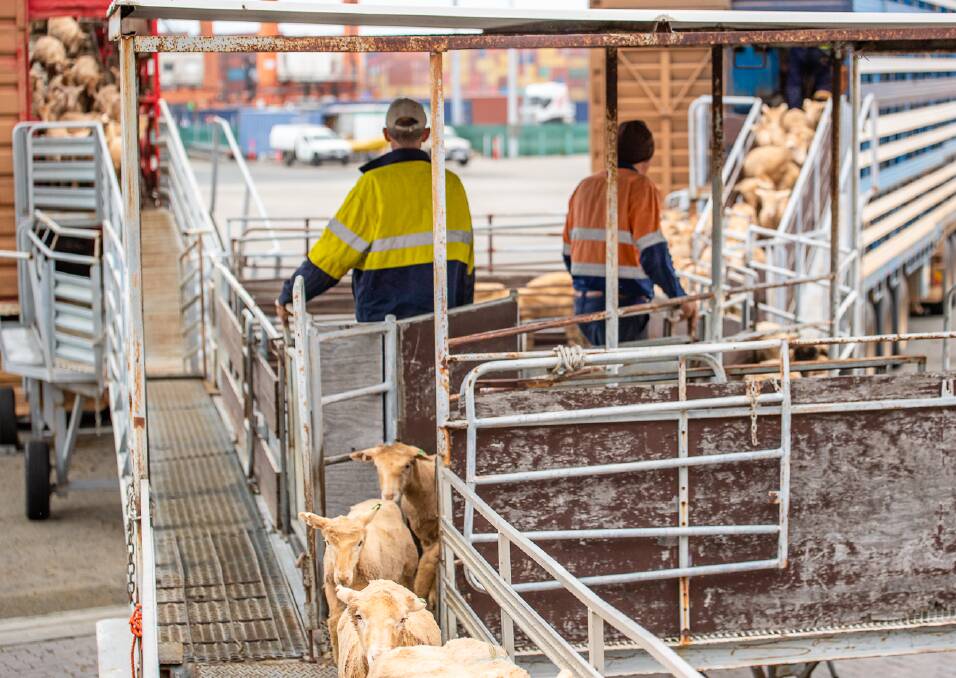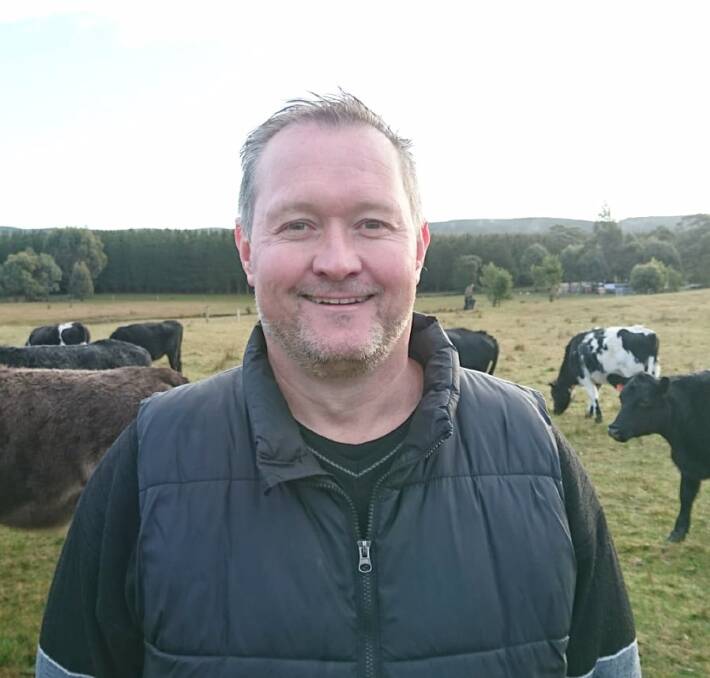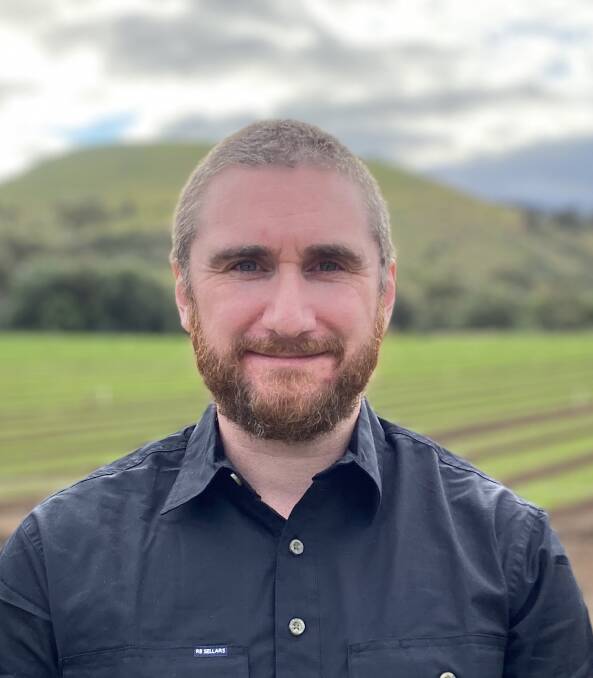
INDUSTRY leaders have welcomed Episode Three Pty Ltd (EP3) being awarded the contract to conduct an official analysis of live sheep exports, by the Department of Agriculture, Fisheries and Forestry.
Subscribe now for unlimited access to all our agricultural news
across the nation
or signup to continue reading
EP3 will compile a wide range of objective, relevant, factual data from its analysis of the commodities markets and its independent survey of live sheep export trade supply chain participants, to complete a report titled, 'Phasing Out Live Sheep Exports from Australia with Minimal Impact to Farmers and Supply Chain Participants'.
This report will assist the independent panel with its final report to Federal Agriculture Minister Murray Watt, due on September 30.
Last week independent panel chairman Phillip Glyde told the media the panel had received more than 4000 submissions, which they were currently in the process of going through.
This figure consisted of 3300 responses to the online survey and 700 written submissions.
He said EP3 was tasked with providing the panel with economic and agronomic modelling.
"They are helping us to do our job," Mr Glyde said.
Farm Weekly this week spoke to some industry figures and producers to see what they thought of the decision.
Steven Bolt Sheep producer Corrigin
Mr Bolt said he supported the government's choice of EP3 to conduct the economic analysis of the live sheep export industry in WA and he met with the company's founders Matt Dalgleish and Andrew Whitelaw when they were in WA last week.
"I think we have seen over the course of a number of years, Matt and Andrew have a very good understanding, of not only the national sheep and grains industry but, they deliver more detail than anyone around that live export space," Mr Bolt said.
"They have a very good understanding of the intricacies of the trade in WA.
"I think it is absolutely appropriate they have been given this contract to conduct the analysis work on the live sheep export industry out of WA."
Mr Bolt said everywhere he had been growers were discussing reducing their sheep numbers.
"For most of these growers if they are going to reduce sheep numbers they are going to remove one mob," he said.
"One mob represents about 25 per cent of their ewe flock for the majority of these growers.
"It will either be 20 or 25pc and that is where I arrive at my figure of between 25 and 35pc of sheep will be lost out of the industry in WA.
"Not everyone will move completely out of sheep, but EP3 has already had about 90 respondents to their survey already and of this about 40pc were reducing sheep numbers and 12-15pc were exiting the industry altogether.
"This was similar to the survey Peter Walker, from Newdegate, did when the policy was announced."

Iain Nicholson Sheep producer New Norcia
Mr Nicholson said while he felt there was a definite need for the economic analysis of the trade, he was wary of anything that was decided upon by the government, but was not judging EP3.
"They need to do an economic analysis to see what their options are," Mr Nicholson said.
"They will have to be looking at it from the options that have been put to them by who?
"They really do need to look at this from a whole of WA approach.
"One thing that became obvious through the consultation meetings was the flow-on effects this policy will have.
"It affects so many other people and areas, communities are struggling to see how they will survive, there were school teachers, truckies, agents, shop owners, shearers and just everyone at the meetings because it will affect entire communities."
He said it also came at a time when the growers were dealing with other big issues, such as the introduction of electronic tags, the Aboriginal Cultural Heritage Act, a biosecurity levy and potential personal issues, making it an even difficult time for many.
Mr Nicholson said the government's lack of understanding and willingness to listen and consider changing the policy shows its partisanship with animal activists.
"It's insulting for the Federal government to ignore the producers' concerns regarding continuation of the trade, in favour of a biased approach," he said.
"If producers are that insignificant in their view on a professional level, then what hope does an industry have?
"The concerns are real and not just economic - but are underwritten by welfare.
"Isn't that what this is fundamentally about or has bias ignored that as well?
"The consultation/submission is biased at its core and states as such on its website.
"So does that imply that an economic analysis will be any different?
"I have my doubts."
READ MORE
Trevor Whittington Chief executive officer WAFarmers
Mr Whittington said EP3 was the best choice for the task in his opinion.
"Ag consulting is a highly specialised area in Australia" Mr Whittington said.
"There are only a handful of businesses with the skills and experience to put together a comprehensive report.
"The guys from EP3 by far and away fit the bill as people that the industry would be comfortable with completing that sort of work.
"They see themselves, they are badged as and their background is, as economists.
"They take a very dry and objective view of agricultural commodities and anyone who regularly reads their material, attends their seminars or listens to their podcasts would know that they take a very objective approach to their assessments of industry issues.
"They present things as they see it, the raw data speaks for itself."
Mark Harvey-Sutton Chief executive officer Australian Livestock Export Council
Mr Harvey-Sutton thought it was a good decision by DAFF to appoint the contract for economic analysis to EP3.
"I think that EP3 is a highly-regarded company," Mr Harvey-Sutton said.
"Both Matt and Andrew are highly respected in the industry.
"I believe they will approach the task without bias and will let their professionalism and credentials do the talking.
"I am pleased we have ended up with a company that is not beholden to an activist agenda and I would like to think they will provide the panel with frank and fearless advice about the true economic impact of this policy."

Tony Seabrook President Pastoralists and Graziers' Association of WA
Mr Seabrook said the export decision had already been made and expert analysis, while informative, would not change the outcome of the Federal Labor government brief.
"I am fairly wary of supporting anyone that has been approached to advise the panel or the minister on how to shut the trade down," Mr Seabrook said.
"Like every other producer in WA we don't want the trade shut down and we are not here to have that discussion.
"We are of the view that they have got it wrong with this policy.
"As much as economic analysis about this may show them the value of aspects of the trade, it will not change the policy.
"The key is to get Labor to change the policy, but not through Murray Watt, through other parliamentarians.
"What we need to do as an industry is to come together and protect ourselves by appealing to the senators from WA.
"If every sheep grower in WA put in 50 cents per sheep, based on 14 million sheep, that would be about $7m.
"This figure would one way or the other carry the day and would be a very serious fund to protect the trade."
Craig Heggaton Board chairman WA Meat Marketing Co-operative Limited
Mr Heggaton, said as a member of the processing industry in WA, he had met with Mr Dalgleish and Mr Whitelaw, along with Graham Lean, who is assisting them with the on-farm aspects.
He said it was good to have people with the knowledge and background to draw on.
"Being ag consultants, they would have a far greater grasp on the state of the industry and the flow-on effects that the potential phase-out... would have economically," Mr Heggaton said.
"I think they have had extensive experience in trading rural commodities themselves and Graham Lean has been very involved in the sheep industry in WA for many years, so I think they will have a far better understanding of the potential ramifications if there was a live sheep export phase-out."
Mr Heggaton felt the phase-out was more of a structural phase down and there were a lot of culminating factors involved, with WAMMCO having expansion plans for the future whether a phase-out was to occur or not.
"WAMMCO is a grower-owned co-operative and our business focus is for success for our members' benefit," he said.
"We have definitely looked at expansion and have those plans on the table.
"We are aiming to process potentially another half a million sheep.
"But that is at least an 18-24 month program to upgrade the plant to the standard that is required to handle that extra load."


